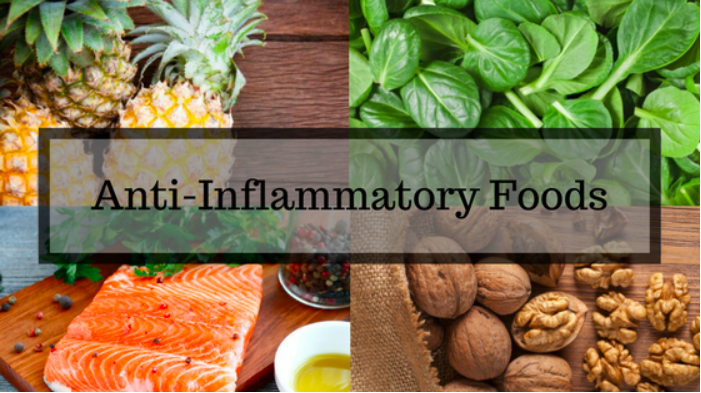3 Ways to Reduce Inflammation

Dr. Angela Sterling, D.C. has a passion for helping others that led her down the path of Alternative Medicine into a career that allows her to provide her patients with high quality healthcare. As a licensed Chiropractic Physician, she brings a holistic approach to medicine in order to find comfortable and effective solutions... more
With disease on the rise in our society it’s important to keep your body healthy. Many people currently suffer from arthritis, diabetes, high blood pressure, and heart disease; however, some don’t understand that the one thing they all have in common is inflammation. While medication is important in treating these conditions, many studies show a change in nutrition to an anti-inflammatory diet, as well as the addition of certain nutritional supplements, help as well.
What is inflammation?
The human body is an intricate organism designed to work together to promote overall health and well-being. When your body suffers from any illness or injury, the brain tells the lymphatic system to start pushing white blood cells to the area, which causes inflammation in an attempt to heal the tissues. Signs of inflammation include pain, discomfort, swelling, redness, and heat. If you’ve ever had a cut you know what I’m talking about. This can be a healthy way for your body to heal; however, chronic inflammation can eventually lead to disease.
How does food affect inflammation?
Eating unhealthy foods can cause inflammation of your intestinal wall by things such as allergies, bacteria, or toxins. The inflammation then spreads from the intestinal wall through your digestive system creating more inflammation which sends more toxins into the bloodstream. By continuing to eat unhealthily, your body begins to classify those certain foods that caused the inflammation as “foreign invaders” creating chronic inflammation.
Here are Three Simple Steps that you can Start Today to Rid of Your Body of Inflammation
1. Add plenty of fresh fruit and vegetables into your diet:
• Green leafy vegetables
• 3-4 servings per day is recommended daily allowance
• Spinach, kale, collards
• Restores cellular health
• Celery
• Improves blood pressure and cholesterol levels, and prevents heart disease
• Broccoli
• Antioxidant powerhouse
• Lowers oxidative stress
• Fights chronic inflammation
• Blueberries
• Decreases inflammation
• Slows cognitive decline
• Improves memory and motor function
• Pineapple
• Bromelain digestive enzyme stops blood platelets from sticking together
• Prevents heart attacks and strokes
2. Make sure to consume a healthy amount of Omega fats in your diet
• Salmon, Mackerel, and Tuna
• Contains Omega-3 fatty acids
• Reduces inflammation
• Lowers risk for chronic diseases
• Walnuts and almonds
• Contains a healthy source of fat
• Provides lipids to reduce inflammation and help heal arthritis
• Chia seeds
• Contains both Omega-3 and Omega-6 fatty acids required to balance the body.
• Regulates cholesterol
• Lowers blood pressure
• Flaxseeds
• Contains Omega-3 fatty acids and phytonutrients
• Anti-aging properties
• Restores cellular health
3. Add some natural anti-inflammatory spices and/or nutritional supplements to your diet
• Tumeric Curcumin spice or supplement
• Active anti-inflammatory agent
• Active anti-proliferative agent
• Helps decrease inflammation in heart disease, IBS, diabetes, and other conditions
• Omega-3 fish oil supplement
• Active anti-inflammatory effects that decrease cytokine levels
• Helps promote gut health
• Ginger
• Two components, ginger, and zingerone help reduce inflammation
• Breaks down accumulation of toxins in organs
• Helps with blood sugar control in people with diabetes
• Vitamin D
• Powerful anti-inflammatory properties
• Several studies show a link between low Vitamin D levels and the presence of inflammation
• Vitamin C
• Powerful antioxidant that helps reduce inflammation by neutralizing free radicals
• Reduces oxidative damage to your cells
• Helps optimize the immune system which helps regulate inflammation
It’s important to know that not all nutritional supplements are the same. Some have low bioavailability and fillers, so make sure to do your research before investing in nutritional supplements. Some things to look for: (1) Make sure they come from a reputable manufacturer; (2) Make sure they’re made in a facility that ensures they. meet the FDA requirements; (3) Make sure the product is engaged in third-party product testing. One particular brand that I use myself and recommend to my patients is Life Priority supplements. They follow all the protocols mentioned and are very cost-efficient.
Let’s put a stop to the spread of disease in our bodies. Let’s take a stand on becoming a healthier person not only for yourself but also for your family and friends. Let’s take that first step today! By eating more fresh fruits and vegetables, consuming more healthy omega fats, and adding in some natural spices and/or nutritional supplements, we have taken that first step to reduce inflammation and get our bodies back to a healthy state.
*WARNING: Remember to always consult with your doctor before starting any nutrition or exercise program to ensure the program is right for you.









